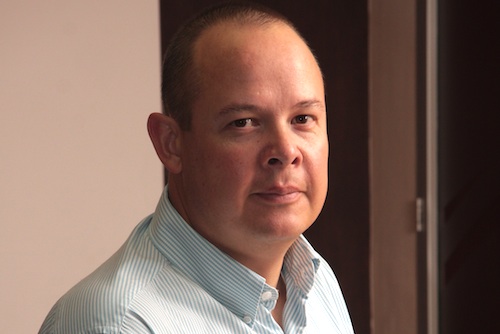
Consumers are likely to come to rely increasingly on wireless technologies for broadband Internet access because the country is not investing sufficiently quickly in fixed-line alternatives.
That’s the view of MWeb Business GM Andre Joubert, who says that if Telkom, the country’s incumbent fixed-line operator, is unable to speed up investment in wireline access technologies, then wireless will become the way most people get online.
Joubert says he is concerned at the slow rate at which Telkom is rolling out higher speed digital subscriber lines — fixed broadband connections over the company’s copper lines. Though the operator has introduced 10Mbit/s links, these are only available in a few telephone exchanges. In most exchanges, the top speed available is still 4Mbit/s.
He says there is strong demand from MWeb Business customers who want 10Mbit/s connections, but aren’t able to get them because their exchanges haven’t been upgraded, or because the quality of copper in the ground is poor.
With higher-speed wireless technologies like long-term evolution expected in the next few years, Joubert says these could become the connection means of choice if prices come down to be more in line with digital subscriber lines.
There’s already evidence that this could happen, with Cell C introducing dramatically lower wireless broadband prices last year on the back of the launch of its new network.
“Telkom’s not executing properly on [digital subscriber lines] has played into the hands of Vodacom, MTN and, lately, Cell C,” Joubert says.
MWeb Business is one of the country’s largest providers of broadband solutions over fixed lines.
“I can’t see the trend to wireless turning,” Joubert says. “The problem is wireless technologies aren’t always as reliable as fixed lines. If prices were the same, people would still prefer the fixed-line product. But considering where we’ve been for years now, wireless will keep on playing a big role.”
Fibre to the home is unlikely to be the solution given that no one has begun investing in this area. Because SA’s cities are so spread out — unlike in many other cities around the world — it is prohibitively expensive to do.
“You need a second network operator that also starts offering fixed lines, but [Neotel] has shown us that its whole play is wireless,” Joubert says. “I don’t know if the [fibre] model can work or whether anyone is brave enough to do it.”
He says he doesn’t believe the growing gap between fixed lines and wireless services will be narrowed unless Telkom undergoes a “complete metamorphosis and someone at the top realises there needs to be a massive renewal of its fixed-line business.”
But this is unlikely to happen given Telkom is focusing much of energy on building a wireless network in 8ta, he says.
In some areas, though, fibre is beginning to play a role in the business market. In Durban, MWeb Business resells capacity on the eThekwini municipality’s fibre network, and Joubert says the company is enjoying strong demand.
“The Durban network works really well,” he says. “I wish more of the metros would get their act together because it works like a charm.”
MWeb Business has nearly 100 customers on the Durban fibre network, offering access speeds of between 512kbit/s and 10Mbit/s. Most have bought the service as a replacement for Telkom’s leased lines. — Duncan McLeod, TechCentral
- Subscribe to our free daily newsletter
- Follow us on Twitter or on Facebook




